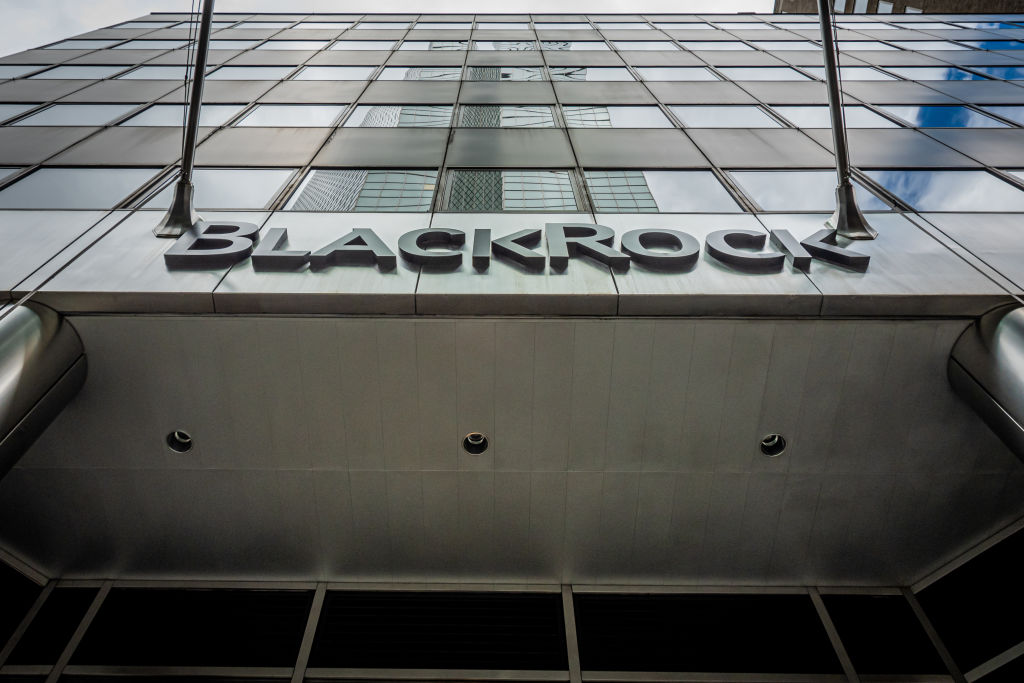We knew it all along that Officer Chauvin did not murder George Floyd.
Woke Up

Corporate “philanthropy” serves the Left’s activist apparatus.
The contents of this article are derived from a forthcoming essay for American Affairs.
Conservatives often argue that private charity can—and should—do for society what is currently done by the welfare state. Therefore, it’s no surprise that recent criticism of corporate philanthropy by some on the Right has been met with cries of hypocrisy by the Left.
What the Left fails to consider (or conveniently ignores) is that today’s corporate philanthropy no longer resembles the “voluntary civil society” championed by so many conservatives. In fact, corporations today predominantly engage in a new, perverse form of philanthropy that evades the regulatory regime Congress established to ensure that corporate philanthropy is transparent, accountable, and in service to the common good. The old philanthropic paradigm of companies donating to uncontroversial, local charities such as little leagues, food banks, and traditional social services has been supplanted by a new, unfettered philanthropy indistinguishable from the activism and politics of the radical Left.
For nearly a century, corporations channeled their charitable giving through their respective foundations—an arrangement eventually formalized by Congress with the passage of the 1969 Tax Reform Act. Under the Act, which remains the law of the land today, corporate foundations receive many of the same tax benefits as public charities in exchange for abiding by certain standards of conduct and transparency. For example, unlike public charities, corporate foundations must disclose publicly in their annual IRS Form 990-PF filings the amounts, purposes, and recipients of their grants. They also must pay out five percent of the fair market value of their assets each year to qualifying recipients. Under no circumstances can corporate foundations mingle with or harness the business divisions, assets, or expertise of their parent companies, nor can they engage in political activities such as lobbying or electioneering.
None of this sits particularly well with today’s corporations, which hold more ambitious visions for society than their predecessors and have outgrown the benefits conferred by foundations. Companies across the country have shuttered or sidelined their foundations and relocated their philanthropic activities in-house. This enables them to leverage their business assets and expertise to maximize their effect on society, engage in politics, lobbying, and for-profit philanthropic schemes without incurring the wrath of the IRS, and, importantly, avoid disclosing any such activities to their shareholders or the public at large, shielding them from criticism.
“Strategic corporate philanthropy,” as the new corporate philanthropy is called, is omnipresent in America and the West, because companies today must appease the forces of the Left in their various guises. These forces include the ESG cartel; members of Congress, whose threats of antitrust enforcement hang over corporations’ heads like a sword of Damocles; race hustlers and racial blackmailers such as Black Lives Matter (BLM); Diversity, Equity, and Inclusion (DEI) apparatchiks and C-suite ideologues; and activist employees, especially members of divisive, identity-based affinity groups (which are necessary for companies to receive good ESG ratings). Put simply, the Left demands that companies concern themselves with ever more radical causes, and strategic corporate philanthropy is the best means for companies to do so.
The corporate reaction to the BLM riots provides a striking example of strategic corporate philanthropy in action.
Following the death of George Floyd, BLM and the radical Left demanded reparations and the transformation of society. Companies, motivated by fear, fashion, and emotion, complied by contributing or pledging more than $99 billion to the BLM movement and related causes, as documented by Claremont Institute Center for the American Way of Life’s BLM Funding Database. The consulting firm McKinsey & Company thinks the number is far larger: They calculated that from May 2020 to October 2022, companies pledged about $340 billion “to racial equity, specifically for Black Americans after the murder of George Floyd in May 2020.”
Very few of these contributions and pledges were made by corporate foundations. Instead, the vast majority were made by companies directly to radical left-wing nonprofits or toward new initiatives such as “social investment” programs, i.e., redistributionist schemes that punish decent Americans to reward the Left’s favorite constituencies. Normally corporations refrain from publicizing the specifics of their philanthropy, but in this instance, they felt it necessary to virtue signal. Thus, the public was provided a glimpse of strategic corporate philanthropy in action.
Companies ranging from Peloton to Raytheon donated to hundreds of radical left-wing nonprofits, including a menagerie of BLM groups and other members of the “Defund the Police” movement, leftist bail funds, revolutionary fronts, deleterious academic institutions (e.g., Ibram X. Kendi’s Center for Antiracist Research), educational groups peddling critical theories of race and gender, partisan voter turnout initiatives, and more.
They also instituted new discriminatory hiring, investment, and DEI programs on a massive scale. McKinsey & Company, for example, expanded its DEI programs, funded training and advancement programs exclusively for “black learners,” and pledged $200 million in pro bono work to “advance racial equity and economic empowerment among black communities.” Mastercard pledged to invest $500 million “to help close the racial wealth gap and opportunity gap for Black communities across America.” Wells Fargo partnered with the discriminatory hiring platform OneTen and spent $150 million to lower mortgage rates and reduce refinancing costs for its black customers.
Again, we only know these details because an unusual number of companies decided to share them during the BLM-fueled hysteria of 2020. The strategic corporate philanthropy of companies normally goes unannounced and unnoticed, and as a result, it remains unclear how much money companies give to other radical causes. The rapid growth, for example, of the LGBTQ+ movement, and the abundance of pro-LGBTQ+ marketing by corporations, suggests that it is no small sum.
Unfortunately, shareholders have little recourse against corporations that engage in strategic corporate philanthropy. When shareholders take corporate directors to court on the grounds that their philanthropy violates the duty of care, courts adjudicate by applying the business judgement rule. This rule grants fiduciaries immunity from liability if their decisions were made in good faith, with the care that a “reasonably prudent person” would exercise, and with the reasonable belief that they were acting in the best interests of the corporation. These are ambiguous criteria, and prior rulings make clear that just about any philanthropic decision satisfies them, no matter how controversial.
Even if the law was more favorable to shareholders, BlackRock, Vanguard, and State Street remain the majority shareholders in more than 96 percent of Fortune 250 companies and nearly 90 percent of S&P 500 companies. Individual shareholders, isolated and atomized as they are, cannot mount an effective resistance against the “Big Three” asset managers and their ESG agenda.
The unfortunate reality is that corporate philanthropy is no longer accountable to shareholders and the public. It’s also incredibly wasteful and irresponsible because resources that should be put toward the creation of shareholder value are instead being spent to empower radicals seeking to dismantle America and the American way of life. We must recognize that corporations have become the agents of radicals and, ironically, willing participants in the demise of the very systems that made them prosperous. It’s high time we fight back, and corporate philanthropy should be in our crosshairs.
The American Mind presents a range of perspectives. Views are writers’ own and do not necessarily represent those of The Claremont Institute.
The American Mind is a publication of the Claremont Institute, a non-profit 501(c)(3) organization, dedicated to restoring the principles of the American Founding to their rightful, preeminent authority in our national life. Interested in supporting our work? Gifts to the Claremont Institute are tax-deductible.
They’re getting what they asked for—good and hard.
Wisconsin will be the new normal unless the Right puts its foot down.
Send out the clowns.
As the statues go, so goes the citizenry
BLM and Antifa won't stop unless we stop them.






